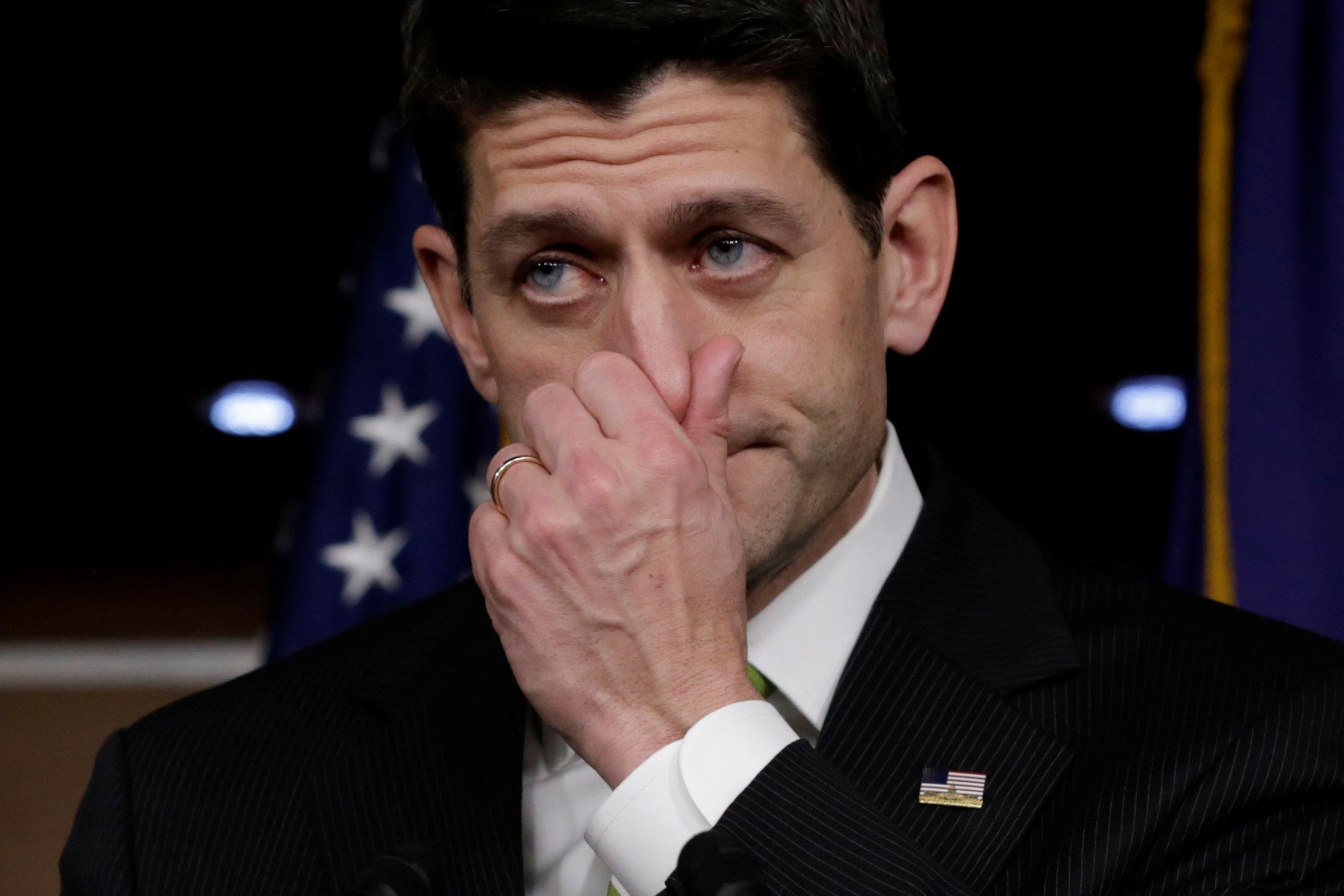
This article first appeared on the Cato Institute site.
Back when the GOP was selecting its nominee for president last year, I warned my Republican friends that on ObamaCare, Donald Trump might be worse than Hillary Clinton:
Good ol' partisanship would stop Hillary Clinton from expanding ObamaCare even a little. A faux opponent like Trump could co-opt congressional Republicans to expand it a lot.
I even quipped that a President Trump might sell out ObamaCare opponents for 10 feet of border wall.
It looks like my prediction was eerily accurate. Even as the House Republican leadership and President Trump claim they are moving legislation that would repeal and replace ObamaCare ( it wouldn't ), Trump is offering to expand ObamaCare in return for Democratic cooperation in funding a new border wall.
ObamaCare requires participating insurers to offer more comprehensive coverage to low-income enrollees, with the understanding that Congress would compensate insurers for that added cost.
The thing is, the Democratic Congress and president that enacted ObamaCare never appropriated funding for those so-called cost-sharing subsidies. President Obama initially recognized the lack of an appropriation, but then began issuing those subsidies anyway–because ObamaCare would have collapsed if he hadn't.
By that time, Republicans had taken over the House of Representatives, and they sued the Obama administration in federal court for encroaching on Congress's power of the purse by spending federal funds without an explicit appropriation.
A federal judge sided with the House. She ruled that paying those cost-sharing subsidies "violates the Constitution," and ordered that they stop, pending an appeal, which the Obama administration timely filed.
Related: Why Are Republicans Backing Single-Payer Health Care?
That was the state of play when President Trump took office. His administration now has three choices.
1. It can declare that it agrees with the court's ruling and enforce the court order
This would mean ending the illegal payments that are the only reason ObamaCare is still on the books. If Trump ends those illegal subsidies, it is likely that even more insurers will announce they are leaving the Exchanges.
As I have written elsewhere, taking this step would create even more pressure on Congress to repeal ObamaCare, particularly the law's community-rating price controls that are causing health insurance markets to collapse.
2. It can appeal the lower court's ruling
This is the strategy the Obama administration pursued. It would be an awkward step given that Trump's attorney general Jeff Sessions and Secretary of Health and Human Services Tom Price have each stated they believe these payments are unconstitutional.
3. It can ask Congress to appropriate the subsidies
This may be the most politically awkward option of all. It would mean the first legislative change that congressional Republicans and the Trump administration make to ObamaCare would not be to repeal it, but to expand it.
Funding cost-sharing subsidies would mean Republicans would be providing more money for ObamaCare than a Democratic Congress did at the height of its power.
According to Reuters, the Trump administration has chosen option #3:
President Donald Trump put pressure on Democrats on Sunday as U.S. lawmakers worked to avoid a government shutdown, saying Obamacare would die without a cash infusion the White House has offered in exchange for their agreement to fund his border wall…
Spending legislation will require Democratic support to clear the Senate, and the White House says it has offered to include $7 billion in Obamacare subsidies to help low-income Americans pay for health insurance, if Democrats accept funding for the wall.
Reuters actually got that last part wrong. Cost-sharing subsidies do not help low-income Americans pay for health insurance. Even without the subsidies, participating insurers would have to keep offering low-income enrollees the same comprehensive coverage they did before.
The amount that low-income consumers pay for Exchange coverage would not go down with these subsidies, and would not go up without them. They are a pure bailout for insurance companies.
Related: Trump, Healthcare and the Art of the Botched Deal
Think about what this would mean. Republicans are unanimous that President Obama violated the U.S. Constitution by spending billions of dollars without a Congressional appropriation. If Republicans respond by just appropriating that funding themselves, they will be rewarding illegal behavior.
If Republicans fund ObamaCare's cost-sharing subsidies, they will encourage future presidents to spend money illegally, because they will be telling future presidents that they can get away with it.
If Hillary Clinton were president, Republicans would still be defending the Constitution, and would still be fighting this bailout.
Michael F. Cannon is the Cato Institute's director of health policy studies.
Uncommon Knowledge
Newsweek is committed to challenging conventional wisdom and finding connections in the search for common ground.
Newsweek is committed to challenging conventional wisdom and finding connections in the search for common ground.
About the writer
To read how Newsweek uses AI as a newsroom tool, Click here.








